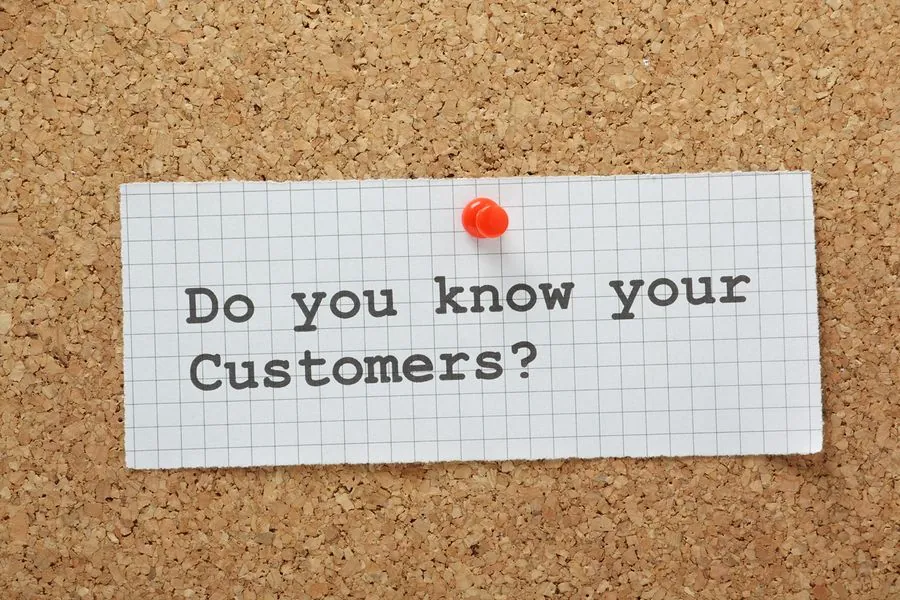Conveying Passion For the Products You Sell

Imagine this: You’re selling cars. A couple with a new baby walks in. You greet them at the dealership doors; you make cooing sounds at their bundle of joy. You start the needs conversation: features, price range, etc. They explain that now that they have a child they’re looking to trade in their sporty two-door for something more spacious and family accommodating. You walk them out to the rows of gleaming cars beneath the waving flags and balloons, showing them a few SUV and van options in their price range. Credit gets checked. Papers get signed. They drive away in something new.
That might be the end of the story, except you’re not just a cheap suit with dollar signs for eyes. You care. What you’re selling them is not simply a mini-van—it’s their whole life laid out in an afternoon of car shopping: The vehicle you’re going to put them in is first a high safety-rated automobile that will provide comfort and peace of mind as they transport their precious cargo; that will, when junior gets older, get him to his soccer games; that will, a few years later, be the car in which she learns to drive; that will, in the empty-nest phase, be the reliable beater that takes him away to college. Are you passionate about mini-vans? Not really. But you are passionate about putting this nice young family into a roomy car with a built-in, Cheerios-sucking vacuum that will drive them into the rest of their lives. At least … you should be that salesperson.
Adjusting Your Attitude
Attitude is everything in sales. So is mindset. If you lack enthusiasm for your product line, for the sales cycle, and for how the prospect will benefit, you will alienate your customer in one way or another. Or, to put it more positively, having passion for what and how you’re selling is key to making your customer—and yourself—happy.
…It’s the Journey
When you’re at the juncture of making a sale, you should have arrived at that point because you armed the buyer with knowledge and gave great advice, guiding them to their purchase decision. You will have successfully demonstrated how your solution meets their needs. It’s not just that they trust you at this point, they also trust that you have a strong conviction about the value and effectiveness of what you’re selling. They know that you stand behind your claims, and that their needs rank highest in your mind. In all these ways and more, you will have acted as a trusted advisor.
Selling the Whole Picture
Always, no matter what we’re selling, we’re selling ideas. The coffee shop around the corner from the office isn’t just where you go for your caffeine fix—you could have Mr. Coffee’d at home. You like Java the Hut because as soon as you walk in, the artisan-coffee scent and cool music envelop you; the ceiling beams are exposed; the barista always makes what looks like a dragon in the latte foam. How much cooler is that then Folgers? It’s the difference between a poster of Aruba and lying on the beach. The same with your gym, which is selling a healthy lifestyle in a feng shui arrangement of workout machines. Or your alarm company, which helps you sleep at night because you know your family is safe from ski-mask wearing evildoers who lurk in the shadows of the world.
You know how it is when you’re the customer. So see the big picture through your customer’s eyes. Understand that passion for what you’re selling is key, and that you always must address the needs—and hopes and wishes and desires and fears—of your customer. A top-of-the-line $5,000 camera is overkill for a hobby shooter. A $500 model will provide that shutterbug with the same features needed to get them on the road to artistic expression. If you’re in the camera business, you understand that, and hopefully you choose to help the customer make the best choice for them. Later, they might come back to you for the 5K camera. Or not. Bottom line is you’re building trust and advising.
Listen Often—and Well
Passion doesn’t just waft forth as you wax admirably about your products, it also comes through in how well you listen to the customer’s requests. And, following that, how effectively you lay out the ways in which your solution will fit the customer’s needs as you’ve come to understand them … through listening. That car salesperson could have tried selling the family of three a motorcycle with a sidecar for the baby. But only if he or she was turning a deaf ear to what those young parents were saying.
Do You Have It?
What does it mean to be passionate about your products? How do you know you’ve got passion? You can measure it in a number of ways. One is to gauge the customer’s responses at the close of a transaction, and then take their pulse again as you circle back with them a few days later, determining if they still feel as strongly about your products and services as they did that first day. You can also measure effective passion by referral sales and repeat business. Largely based on your passion, customers recommend you to their peers; they want to carry forth the message that both you and your offerings are well-worth it.
Selling the Future
You cannot be a trusted advisor without passion. We don’t mean trotting out the “I have the same one at home” trick. Having passion (as well as compassion) means you genuinely keep the customer’s wellbeing in mind. You’re looking into their future, and continually striving toward a single goal: their needs. Aim for that and you’re working well; you’re working for the customer. Also, you’re helping yourself, because in always wanting the best possible outcome for your customer, you carry on a happier, more fulfilled work life—one in which you enjoy what you do. Does the barista make the dragon because she has to? No, because she wants to.
Finally, we know that sales professionals who fully stand behind what they sell tend not only share their passion with customers, they also transmit it to their peers in the office and in the field. Other sales people pick up on your passion and are inspired by it. That’s good for the entire team. It helps create an atmosphere of positivity and genuine caring. And who doesn’t want to buy that?

- Account Planning (11)
- Awards (53)
- Client Testimonial (37)
- Personal Branding (19)
- Podcast (12)
- Research (70)
- Sales Career Development (85)
- Sales Coaching (156)
- Sales Consulting (133)
- Sales Culture (164)
- Sales Enablement (349)
- Sales Leadership (111)
- Sales Management (243)
- Sales Negotiation (16)
- Sales Prospecting (120)
- Sales Role-Playing (19)
- Sales Training (234)
- Selling Strategies (256)
- Soft Skills (68)
- Talent Management (92)
- Trusted Advisor (28)
- Virtual Selling (42)
- Webinar (12)































